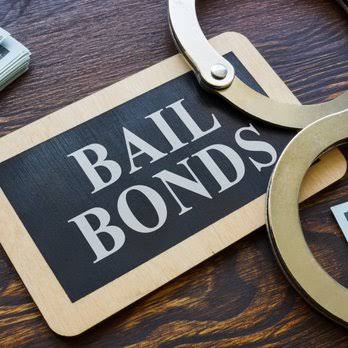You might have seen the phrase, ‘Booking Type VC or Booking Type PC’, and have wondered what it means. In this overview, we would discuss what it means in the legal arena.
Booking Type VC (Vehicle Code):
Booking type VC refers to a specific category of legal charges related to violations of traffic laws and regulations. The “VC” stands for Vehicle Code, which is a set of laws governing the use and operation of motor vehicles within a particular jurisdiction. Booking type VC typically involves offenses related to driving, vehicle registration, and road safety. Here are some common examples:
– Speeding: Speeding violations fall under the Vehicle Code. Each jurisdiction sets specific speed limits for different types of roads, and exceeding these limits can lead to a VC booking. The severity of the offense often depends on how much the speed limit was exceeded.
– Driving Under the Influence (DUI): DUI offenses are a serious violation of the Vehicle Code. It involves operating a motor vehicle while impaired by alcohol or drugs. DUI cases can result in various penalties, including fines, license suspension, and even imprisonment.
– Reckless Driving: Reckless driving, which endangers other road users, is another VC offense. This may include actions like excessive speeding, aggressive lane changes, or ignoring traffic signals.
– Driving Without a Valid License: Operating a vehicle without a valid driver’s license or with a suspended or revoked license is also covered by the Vehicle Code. Penalties for this offense can range from fines to imprisonment.
– Failure to Obey Traffic Signs and Signals: Disobeying stop signs, red lights, and other traffic signals can lead to a VC booking. Such violations can result in fines and points on your driving record.
Booking Type PC (Penal Code):
Booking type PC, on the other hand, pertains to charges that fall under the Penal Code of a jurisdiction. The “PC” represents Penal Code, which encompasses a wide range of criminal offenses beyond traffic violations. The Penal Code typically deals with more serious crimes, including:
– Assault and Battery: Charges related to physical harm or threats against another person often come under the Penal Code. The severity of the offense can vary, leading to misdemeanor or felony charges.
– Burglary and Theft: Breaking and entering a property with the intent to commit theft or other crimes is a common PC offense. Theft offenses can also include shoplifting and embezzlement.
– Homicide: Crimes such as murder and manslaughter are serious charges under the Penal Code. These offenses involve the unlawful killing of another person, with varying degrees of intent and circumstances.
– Robbery: Robbery is the act of taking property from another person through force or intimidation. It’s considered a violent crime and falls under the Penal Code.
– Sexual Offenses: Sexual assault, rape, and related crimes are typically covered by the Penal Code. These offenses are subject to significant legal consequences.
In summary, Booking type VC relates to violations of traffic laws and regulations governed by the Vehicle Code, while Booking type PC involves more serious criminal offenses covered by the Penal Code. These distinctions are crucial in the legal system to ensure that appropriate charges and penalties are applied based on the nature and severity of the alleged offense.
RELATED:
Racial animus: Meaning, Element and Factors
What USM HOLD Means On a Jail Booking Report? Know The Law
Custody Release: Meaning, Significance and FAQs
Frequently Asked Questions
1. Can a Booking Type VC be upgraded to a Booking Type PC?
In some cases, a Booking Type VC may be upgraded to a Booking Type PC, depending on the circumstances and the severity of the offense. For instance, if a traffic violation leads to a serious accident resulting in injury or death, it could lead to criminal charges under the Penal Code. Similarly, repeated and severe traffic violations may escalate to criminal charges, especially if they involve recklessness, evasion, or driving under the influence. However, whether a VC offense is upgraded to a PC offense is determined by the legal system and the specific laws of the jurisdiction.
2. What are the typical penalties for Booking Type VC and PC offenses?
Penalties for Booking Type VC and PC offenses can vary widely based on the jurisdiction and the specific nature of the offense. VC offenses often result in fines, points on your driving record, license suspension, or mandatory traffic school. PC offenses, being more serious, can lead to fines, probation, imprisonment, parole, or rehabilitation programs. The severity of penalties depends on factors such as the offender’s criminal history, the nature of the offense, and the jurisdiction’s sentencing guidelines.
3. Can I defend against Booking Type VC or PC charges in court?
Yes, individuals facing Booking Type VC or PC charges have the right to defend themselves in court. Defenses can vary depending on the case, but they often include challenging the evidence, asserting constitutional rights, questioning the legality of the stop or arrest, and presenting an alibi or evidence of innocence. It’s essential to consult with an attorney who specializes in the relevant area of law to explore your defense options.
4. Do Booking Type VC and PC offenses stay on my record permanently?
The duration for which Booking Type VC and PC offenses remain on your record can vary based on the offense and the jurisdiction. Generally, VC offenses, such as traffic violations, can stay on your driving record for a few years, while PC offenses, being more serious, may remain on your criminal record indefinitely or for an extended period. However, some jurisdictions offer options for expunging or sealing certain offenses from your record, especially for minor infractions or first-time offenders.
5. Can a Booking Type VC or PC offense affect my insurance rates?
Yes, both Booking Type VC and PC offenses can impact your insurance rates. VC offenses, such as speeding tickets or DUI convictions, often lead to higher auto insurance premiums. The increase in rates can vary depending on the severity of the offense and your insurance provider’s policies. PC offenses, especially those related to criminal activity, can also result in higher insurance premiums. Insurance companies view individuals with a history of criminal convictions as higher-risk clients. It’s essential to discuss potential rate increases with your insurance provider and explore options to mitigate these effects, such as defensive driving courses or safe driving discounts.
In conclusion, understanding the differences between Booking Type VC and PC offenses, as well as their potential consequences and defense options, is crucial for individuals facing legal charges. Legal outcomes can vary widely based on jurisdiction and specific circumstances, so seeking professional legal advice is advisable when dealing with such matters.
Last updated on: April 26, 2024




